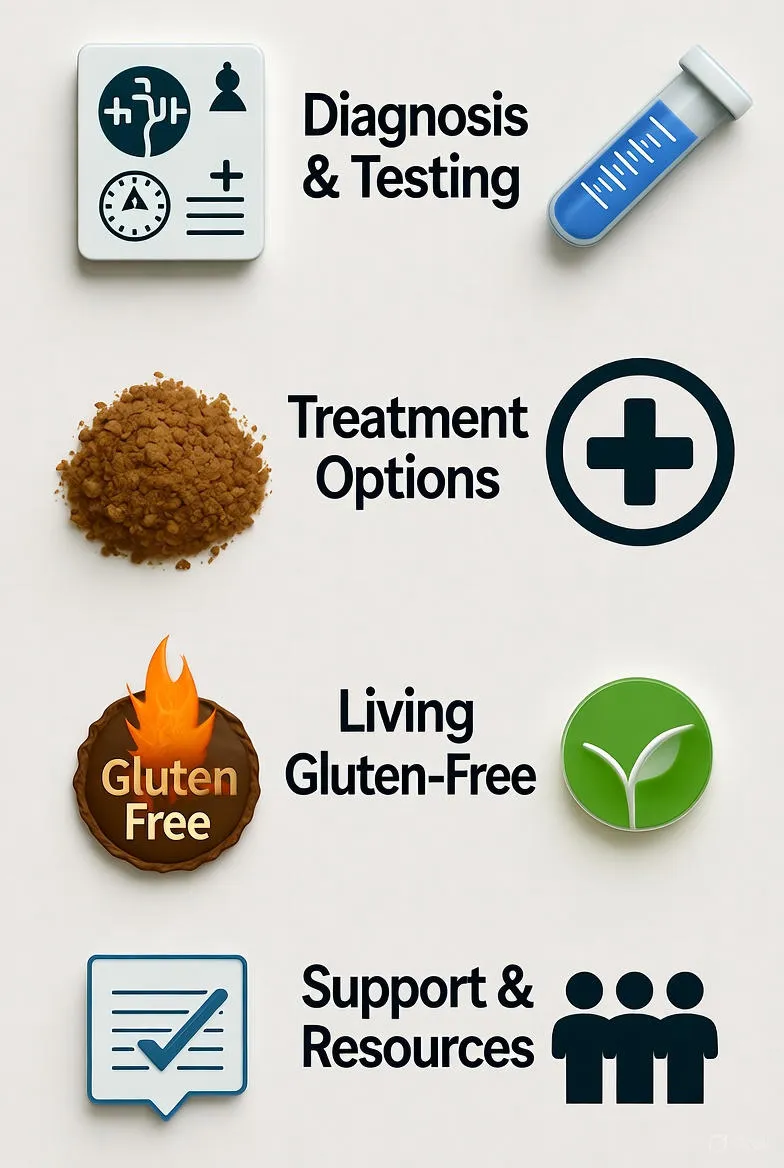The Hidden Connection Between Gluten and Sleep: How Your Diet Could Be Affecting Your Rest
Discover how gluten consumption can affect your sleep quality. Learn about the biological connection between gluten, inflammation, and rest, and explore practical steps to improve sleep naturally.

Sleep is one of the most important pillars of human health, and yet millions struggle to get quality rest each night. While stress, technology, and lifestyle factors are well-known disruptors of sleep, diet—especially gluten consumption—is increasingly being recognized as a key player in sleep quality. The relationship between gluten and sleep may not be immediately obvious, but mounting evidence suggests that gluten sensitivity or intolerance could significantly impact how well we rest.
What Is Gluten and Why Does It Matter?
Gluten is a protein found primarily in wheat, barley, and rye. It provides elasticity to dough and helps foods maintain their shape. For most people, gluten poses no problem. However, for individuals with celiac disease, non-celiac gluten sensitivity (NCGS), or wheat allergy, gluten can trigger an immune response that leads to inflammation, digestive distress, and even neurological symptoms.
When the body reacts negatively to gluten, this inflammation doesn’t just affect the digestive system—it can ripple throughout the body, influencing hormone balance, neurotransmitter activity, and even sleep regulation.
The Biological Link Between Gluten and Sleep
The gut and brain are intimately connected through what is known as the gut-brain axis. This complex communication network relies heavily on neurotransmitters like serotonin and gamma-aminobutyric acid (GABA), both of which are essential for regulating mood and sleep. Gluten-related inflammation can disrupt gut health and reduce the production of these crucial neurotransmitters, leading to issues like insomnia or restless sleep.
1. Inflammation and Immune Response
When someone with gluten intolerance consumes gluten, their immune system reacts as if it were fighting an invader. This immune response leads to the release of inflammatory cytokines—chemical messengers that can cross the blood-brain barrier and affect brain function. Chronic inflammation can interfere with the brain’s ability to regulate sleep-wake cycles, leading to difficulties falling asleep or staying asleep.
2. Hormonal Disruptions
Gluten-induced inflammation may also influence hormones that control circadian rhythms. For example, inflammation can interfere with the production of melatonin, the hormone that signals to your body that it’s time to rest. Reduced melatonin levels can delay sleep onset and decrease total sleep duration, leaving you tired and irritable the next day.
3. Digestive Discomfort and Nighttime Restlessness
Digestive symptoms are among the most immediate signs of gluten intolerance. Bloating, gas, and abdominal pain can make it difficult to fall asleep comfortably. In some cases, individuals with celiac disease may experience nocturnal diarrhea or cramps, which disrupt sleep and reduce overall rest quality.
Common Sleep Issues Linked to Gluten Sensitivity
- Insomnia: Difficulty falling asleep or staying asleep due to hormonal imbalance or inflammation.
- Restless Legs Syndrome (RLS): Studies have found a higher prevalence of RLS in individuals with celiac disease, possibly linked to nutritional deficiencies caused by malabsorption.
- Fatigue and Daytime Sleepiness: Even when total sleep hours are adequate, inflammation and nutrient imbalances can cause persistent tiredness.
- Vivid Dreams and Night Sweats: Some people report abnormal dream patterns and sweating after consuming gluten, likely due to fluctuations in stress hormones.
Gluten and Sleep Disorders: What Research Says
Scientific research on gluten and sleep is still emerging, but the evidence is growing. For example, studies on celiac disease patients have shown that a strict gluten-free diet can improve not only gastrointestinal symptoms but also sleep quality and mood. Individuals with non-celiac gluten sensitivity report similar improvements once gluten is eliminated from their diet.
Researchers believe that gluten may influence sleep through multiple pathways—immune activation, changes in gut microbiota, and alterations in neurotransmitter levels. For instance, disruptions in gut flora caused by gluten sensitivity can affect serotonin synthesis, which in turn influences melatonin production and sleep architecture.
Signs That Gluten Might Be Affecting Your Sleep
It can be tricky to determine whether gluten is impacting your sleep, especially since symptoms can vary widely from person to person. However, if you notice the following signs, it may be worth exploring a potential gluten connection:
- Frequent insomnia without clear cause
- Chronic fatigue despite adequate rest
- Brain fog, anxiety, or irritability
- Digestive discomfort after consuming bread, pasta, or other gluten-rich foods
- Unexplained skin rashes or inflammation
If several of these symptoms resonate with you, it may be beneficial to consult with a healthcare provider about testing for celiac disease or trying a short-term gluten elimination diet under supervision.
How Going Gluten-Free Can Improve Sleep
Many people report better sleep after removing gluten from their diet. Improvements often include falling asleep faster, fewer night awakenings, and waking up feeling more refreshed. These positive changes may stem from reduced inflammation, stabilized hormone levels, and better nutrient absorption—especially of minerals like magnesium, zinc, and iron, which are critical for sleep health.
Moreover, a gluten-free diet encourages more mindful eating habits, which can reduce late-night snacking and improve digestion before bedtime—both of which contribute to better sleep hygiene.
Other Dietary Factors to Consider
While gluten may play a role in poor sleep for some individuals, it is rarely the sole culprit. Other dietary factors can also influence rest quality:
- Caffeine and Sugar: Overconsumption can disrupt sleep patterns and delay melatonin production.
- Dairy Sensitivity: Some people who react to gluten also have dairy intolerance, which can further complicate digestion and sleep.
- Nutrient Deficiencies: Iron, magnesium, and vitamin D deficiencies can impair sleep quality and are common in individuals with gluten-related disorders.
Practical Tips for Better Sleep and Gluten Management
- Keep a food and sleep journal to track patterns between what you eat and how well you sleep.
- Try a gluten-free trial period of at least four weeks and observe any changes in sleep and energy.
- Consult a nutritionist or gastroenterologist to ensure your diet remains balanced and nutrient-rich.
- Incorporate foods that promote relaxation, such as almonds, bananas, and chamomile tea.
- Establish a consistent bedtime routine with limited screen exposure and a cool, dark environment.
Conclusion
The impact of gluten on sleep is a complex and evolving field of study. While not everyone who eats gluten will experience sleep disturbances, for those with sensitivities or celiac disease, eliminating gluten can make a remarkable difference. Understanding how your body responds to gluten is essential for improving not only your digestive health but also the restorative power of your sleep. A well-rested body and mind begin with mindful nutrition and a deeper awareness of how food affects your overall well-being.
Ultimately, the connection between gluten and sleep underscores a broader truth: good sleep begins in the gut. By paying attention to what we eat, we may unlock one of the most powerful and natural remedies for better rest—one meal at a time.


